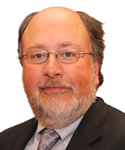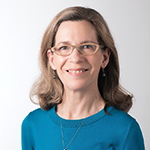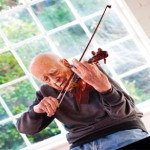This month, the ACR ushers in its new president, David Daikh, MD, PhD. Dr. Daikh serves as the director of the Rheumatology Fellowship Training Program at the University of California, San Francisco (UCSF) and as chief of the Rheumatology Division at the SFVA Medical Center, where he directs the Rheumatology Clinic. He graduated from the Oregon Health & Science University School of Medicine, Portland, in 1991. He completed his residency in 1994 and his fellowship in 1997, both at UCSF. Dr. Daikh’s research has focused on immune mechanisms of rheumatic disease, and he oversees a core laboratory that serves a number of investigators at UCSF.
The Rheumatologist (TR) recently learned more about the organization’s new president and how he envisions the ACR evolving in the coming year.
TR: You, your younger brother and your cousin are all rheumatologists. What attracted you to the field?
Dr. Daikh: Originally, I was going to be a neurologist. I was doing neuroscience research and thought the brain was the last frontier. I was really interested in the mind–body connection. When I got in the wards and started seeing patients, I realized that I wanted to be more general than addressing only one system.
Then I did an elective in rheumatology. I was initially attracted by the Sherlockian aspect of the specialty. I was intrigued by the need to be a detective and use my clinical examination skills to come to a diagnosis. You have to really dig and understand the patient in many aspects. There are so many unknown questions that need to be asked, just as there is so much still to be understood about autoimmunity and autoimmune disease.
I was also attracted to the opportunity to care for patients over long periods of time and greatly impressed by the kindness and collegiality of rheumatologists. Rheumatologists are really kind people, and an interesting group. At my medical school, the first rheumatologists who left lasting impressions were people like Steve Campbell, Jim Rosenbaum and Michael Davies, all of whom were great clinicians and teachers.
TR: You’ve served in various roles at the ACR over the past 15 years. Is being president simply a natural progression, a next step forward?
Dr. Daikh: I wanted to get involved in the field and profession beyond my own institution. As a fellow, I really admired many clinical and scientific leaders in our field who were involved in the ACR. I was involved with the Committee on Rheumatology Training and Workforce Issues for several years and the Scientific Advisory Council of the Rheumatology Research Foundation, and also served as vice president, and then president of the Rheumatology Research Foundation. Remaining engaged with the College has been very enjoyable and rewarding, and I am truly honored to serve as president of the organization.



